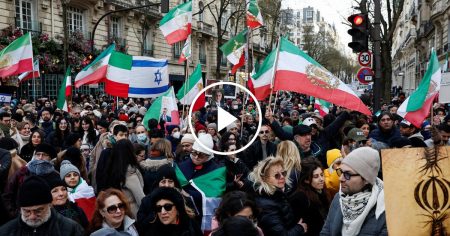Maryland Judge Blocks Deportation of Kilmar Armando Abrego Garcia, Challenging Trump Administration’s Immigration Policy
In a significant judicial intervention that highlights the ongoing tensions between immigration enforcement and due process rights, a Maryland judge has temporarily halted the Trump administration’s attempt to deport Kilmar Armando Abrego Garcia. The ruling ensures that Abrego Garcia will have the opportunity to legally challenge his removal from the United States before any deportation can proceed. This case adds to the growing list of judicial checks on the administration’s aggressive immigration enforcement agenda, while raising important questions about the balance between national security concerns and individual legal protections guaranteed under U.S. law.
Court Order Prioritizes Due Process Over Expedited Removal
The judge’s decision came in response to an emergency filing by Abrego Garcia’s legal representatives, who argued that their client faced imminent deportation without having been afforded the full legal process to which he is entitled. According to court documents, the temporary restraining order specifically prevents immigration authorities from removing Abrego Garcia from the country until his case can receive proper judicial review. Legal experts note that this ruling doesn’t necessarily determine the ultimate outcome of Abrego Garcia’s immigration status, but rather ensures that established legal procedures must be followed before any final action is taken.
“This decision reaffirms a fundamental principle of our legal system – that individuals facing deportation have the right to challenge that decision in court,” explained Maria Sanchez, an immigration attorney not directly involved in the case. “The judge has essentially said that regardless of the administration’s immigration priorities, the government cannot circumvent established legal protections.” The temporary stay will remain in effect until Abrego Garcia’s legal challenge can be properly heard and adjudicated, a process that could potentially take months as it winds through the already backlogged immigration court system.
Administration’s Immigration Enforcement Faces Judicial Scrutiny
The Abrego Garcia case represents just one example of the broader friction between the Trump administration’s hardline immigration policies and the judiciary’s role in ensuring constitutional protections. Since taking office, the administration has implemented a series of executive orders and policy directives aimed at expediting deportations and reducing what officials have characterized as “loopholes” in the immigration system. These measures have included expanded criteria for prioritizing deportations, limitations on asylum eligibility, and attempts to streamline removal proceedings.
However, these efforts have repeatedly encountered resistance in federal courts across the country. Judges in multiple jurisdictions have issued injunctions against various aspects of the administration’s immigration agenda, citing concerns about potential violations of due process, international refugee protections, and administrative procedure requirements. Immigration advocates argue these judicial interventions are crucial safeguards against executive overreach, while administration officials contend that such rulings undermine legitimate efforts to enforce immigration laws and protect national security interests. The Abrego Garcia case fits into this larger pattern of judicial checks on executive immigration enforcement actions.
Human Impact and Legal Implications of Deportation Proceedings
Behind the legal battles and policy debates lies the profound human impact of deportation proceedings on individuals like Abrego Garcia. While specific details about his personal circumstances and the basis for his deportation order remain limited in public records, his case highlights the life-altering consequences of immigration enforcement decisions. Deportation can mean separation from family members, return to potentially dangerous conditions in one’s country of origin, and the loss of established lives and livelihoods built in the United States.
Immigration attorneys across the country have reported increased anxiety among immigrant communities due to heightened enforcement activities and policy changes that have expanded deportation priorities. “What we’re seeing is a profound chilling effect,” noted Carlos Rodriguez, director of a legal aid organization serving immigrant communities. “Even individuals with valid legal claims are afraid to engage with the system for fear of being caught up in enforcement actions.” Legal scholars point out that this fear can undermine the integrity of the immigration system itself, as individuals may avoid appearing for hearings or pursuing legitimate legal remedies – paradoxically making the system less orderly and transparent, contrary to stated policy goals.
Balancing National Sovereignty with Individual Rights
The tension at the heart of cases like Abrego Garcia’s reflects a fundamental question in immigration policy: how to balance a nation’s sovereign right to control its borders with its commitment to individual rights and due process. Administration officials have consistently emphasized the former, arguing that robust immigration enforcement is essential for national security, economic stability, and the rule of law. In numerous public statements, officials have characterized judicial interventions in immigration enforcement as inappropriate impediments to executive authority in matters of national sovereignty.
Critics of the administration’s approach, however, contend that constitutional protections and due process rights extend to non-citizens within U.S. jurisdiction – a position supported by numerous Supreme Court precedents. “The Constitution doesn’t say that only citizens get due process,” explained Professor Jennifer Liu, who specializes in immigration law at Georgetown University. “Many of these fundamental protections apply to all persons subject to U.S. law, regardless of their citizenship status.” This constitutional debate forms the backdrop against which individual cases like Abrego Garcia’s play out, with far-reaching implications for thousands of similar situations across the country.
Looking Forward: The Future of Immigration Enforcement and Judicial Oversight
As Abrego Garcia’s case proceeds through the legal system, it represents just one chapter in the ongoing national conversation about immigration enforcement and judicial review. Legal experts anticipate that similar cases will continue to emerge as the administration pursues its immigration priorities and courts evaluate whether those actions comply with statutory and constitutional requirements. The resolution of these cases will help shape the practical boundaries of executive authority in immigration enforcement for years to come.
The outcome of Abrego Garcia’s case could potentially influence how immigration authorities approach similar situations in the future. If his legal challenge ultimately succeeds, it might require adjustments to current enforcement protocols to ensure proper procedural protections. Conversely, if the administration prevails after full judicial review, it could bolster arguments for expanded executive discretion in immigration matters. What remains clear, regardless of the outcome, is that the judiciary continues to play a crucial role in ensuring that immigration enforcement actions adhere to established legal principles and constitutional protections – a function that maintains the delicate balance of powers upon which the American legal system depends.
As this and similar cases make their way through the courts, they will collectively help define the practical meaning of due process in the immigration context, shaping not only individual lives but also the fundamental character of American immigration policy in the 21st century.











